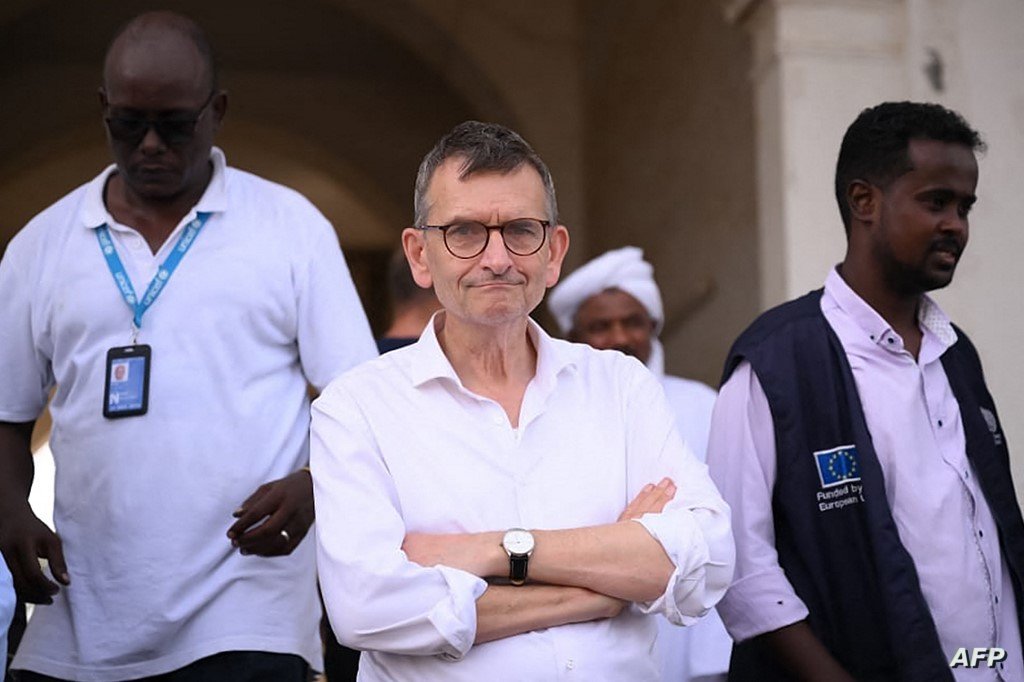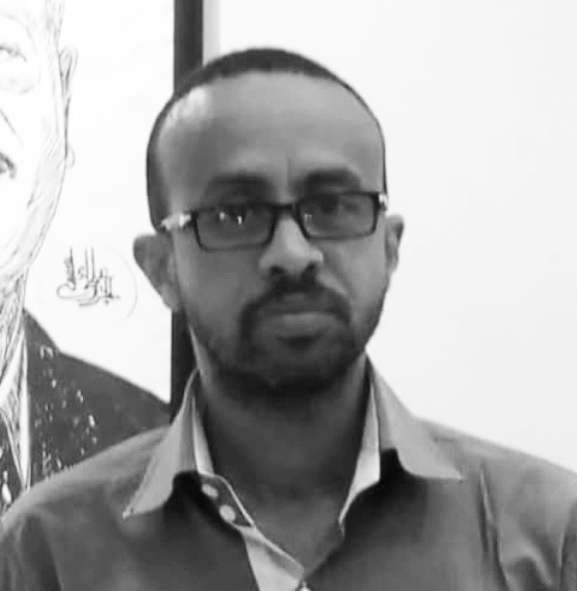
Fixing Diplomatic Discourse
Khaled Massa
The ongoing war in Sudan since mid-April has added much to the vocabulary of hatred. Traditional media platforms have become filled with discussions of war, sharp polarization, and the invocation of anything that could prolong the war, inflame its flames, and widen the gap between its parties and the path to extinguish it through political, diplomatic, and negotiation channels.
The language used is no less intense than that employed in the mutual media bombardment between the army and the Rapid Support Forces. This language has been used between the authority of the decisions of the twenty-fifth of October 2021 and the head of the United Nations Integrated Transition Support Mission, Volker Perthes. Perthes considered the aforementioned decisions as a "coup" against the transitional period for which a special envoy was appointed by the UN Secretary-General to support it in Sudan. Meanwhile, army leaders expressed their dissatisfaction with the actions of the special envoy and the missions head, describing them as exceeding the limits of the mandate granted under UN Security Council Resolution 2525, which establishes a UN mission to support the transition under "Chapter VI" to intervene in political affairs by favoring the civil side of the transitional government.
The mission, through its head, resumed its attempts to complete its assigned tasks by bridging the gap between the military and civilian components through the so-called "triangular mechanism" and adopted a "language of dialogue" in an effort to recover the transition path. However, the envoy did not escape accusations of bias and non-neutrality. The situation escalated to the point that the authority of the October 25 decisions preempted the annual renewal of the mandate of the integrated mission to support the transition, demanding the replacement of the special envoy Volker Perthes through a letter from the army commander Abdul Fattah al-Burhan to the UN Secretary-General.
Despite Sudans need for regional and international platforms, especially in this time of war, to serve as an outlet to exit the dark war tunnel, the language of war and hatred infected diplomatic discourse. It reached the point where the special envoy was accused of igniting the April war, according to the army commanders statement.
On the other hand, statements from regional organizations, such as the African Union and IGAD, regarding the war in Sudan, expressed a deep crisis in the assessments that diplomatic discourse should entail for the nature of the conflict in Sudan and the parties involved in the war. Their officials made statements that stripped these organizations of the "neutrality" attribute, depriving them of the eligibility to mediate in ending the war in Sudan. In return, the government delegation boycotted the session discussing the situation in Sudan, insisting on the Kenyan presidents withdrawal from chairing the session, accusing him of non-neutrality. Thus, solutions to the Sudanese war were taken out of the hands of the region, whether through the African Union or IGAD. It is natural that this language leads us to a dead end, delaying the end of the war and hindering all efforts to end the conflict.
The International Organization for its governing systems triumphed, and its Secretary-General responded to the speech of the army commander calling for the removal of the special envoy by issuing a resolution (No. 2685) renewing confidence in the special envoy and extending the mandate of the integrated mission until December 2023. The recent visit of the army commander Abdul Fattah al-Burhan to Kenya, the meeting with President William Ruto, and the visit of the Ethiopian president to discuss the Sudanese situation, we hope will serve as a replacement for the language of war with a positive diplomatic discourse. This can help regional organizations retrieve the Sudanese war file, keeping the specter of international intervention at bay.
Additionally, the statements made in the recent Jeddah platform regarding the reciprocal language between conflict parties, the appointment of a new special envoy, the Algerian diplomat Ramtane Lamamra, to head the integrated mission in place of the resigned Volker Perthes, and the International Organizations announcement, through its spokesperson Stefan Dujarric, of its readiness to cooperate and work with all Sudanese parties to end the war, which has completed its seventh month in Sudan. The International Organization aims to secure the parties of the IGAD initiative and the neighboring countries initiative, relying on the "Jeddah Initiative" platform to be the way to stop the Sudanese war, restore the transition and democratic transformation, and end the suffering of the Sudanese people.
We hope that this language will be the alternative to the language of war and hatred that previously governed diplomatic discourse. We also hope that it will have its impact on the public discourse in Sudan, hastening the end of the war, cutting off the path to the discourse of war and hatred. This would distance the Sudanese state from transitioning from the realm of UN missions with a political nature to the pitfalls of UN missions with a military nature, moving from Chapter VI to Chapter VII.


